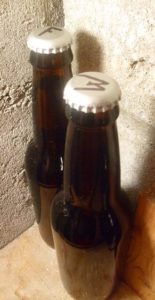There may come a time that beer and brewing will only mean writing to me. Not that I have any real issue with beer but right now I have three co-writing projects all of which add up to around 150,000 words. I realized just now that that’s a lot of words when I finish typing out all those zeroes. But I am, frankly, inspired by Boak and Bailey and their jump at long writing about post WWII UK beer culture. I notice, however, that they are each other’s sole co-writers and they are sensible enough to be writing one book. So, maybe an explanation of what the hell I am up to is in order.
=> The first, the Alan and Max book is the furthest ahead already at over 35,000 but I am not sure what to make of it. It’s intended to be funny and all about craft beer culture. It might be titled “Lies Craft Beer Taught Me” but probably not. Unlike the other two projects, it is largely creative writing, an exploration of good beer culture with little respect for space and time – let alone craft beer culture. Writing with Max has been a truly refreshing experience as we have completely different paths in life and come from different cultures yet have come to a very similar place in our thoughts about the good beer community and the pressures as well as interests imposing upon it. We are planning on a Kindle release when it is ready to go.
=> And, as you may well have suspected, Craig and I are writing about Albany Ale with a real return to focus. We are working on a series of article we were invited to write for Brewery History. The first, on the brewing scene in the upper Hudson in the 1600s is about 70% there. There have been spin-offs, too, which is to be expected after more than two and a half years. Craig has already done a presentation with more to come as well as some interviews with local media. Living five hours drive away from the subject matter is a bit of an issue for me but, well, you do what you can. We have spoken to a publisher about a proper book on the topic, too. We shall see what the future holds but we are very confident there is enough information there to justify two covers and an index.
=> Third project? Can’t tell you yet because papers are in transit. Jordan and I were invited to write it and we are all a giggle about the prospect. It may end up having aspects of the other two projects though I can confirm that, unlike Max, it will not include a description of a tube up Jordan’s butt. I can also confirm that we have a reputable publisher. I can tell you that because during a conference call I asked “so, can I confirm that I have a reputable publisher?” and was told that I could. More detail should be forthcoming in the near future but suffice it to say there shall be interviews, research and plenty of emails before the thing comes into the world.
All of which means I must like co-writing. I think I do even though I’ve been a solo operation for most of the ten years that I have been writing here. What I like about co-writing is the chance to see a large idea through the eyes of another. What is really interesting at the moment is seeing large and related ideas through the eyes of three others concurrently. Craig brings more zeal than I have as well as a greater capacity for detail. Jordan has an inordinately large vocabulary by far plus a wider vision. Max is more incisive and also not weighed down by presumptions about both beer and writing that I carry as part of my own personal baggage. Sounds like therapy when you put it that way. Which it might be. The overall effect is making sense of these past ten years writing in a basement, putting it all into some order. Which may leave little time for the drinking of beer due to the thinking about it.



